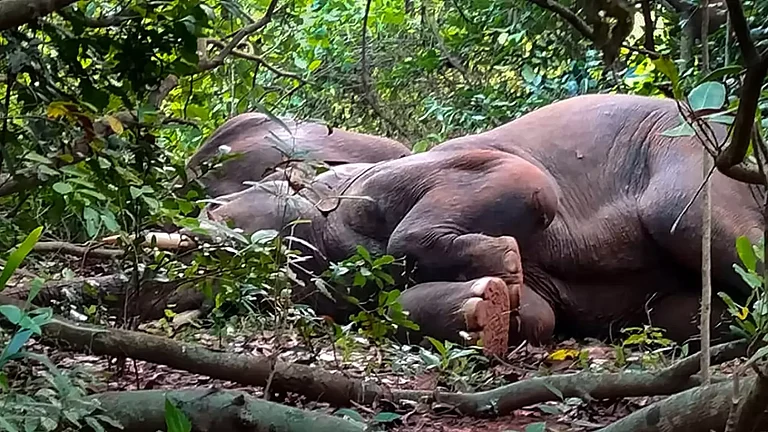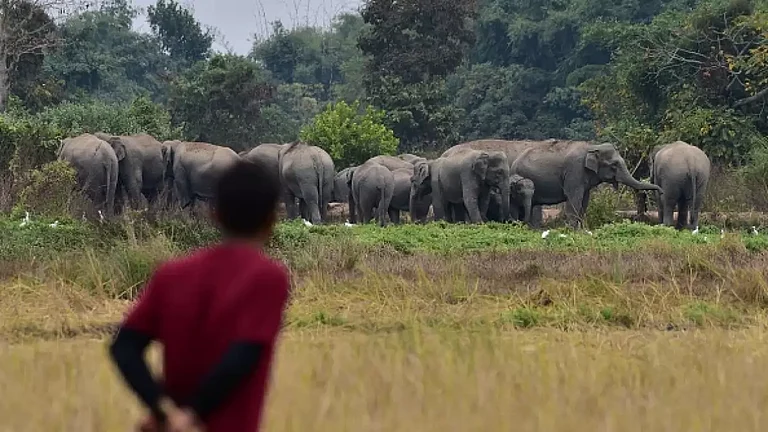Night-vision drones make elephants visible even in mild forest canopy.
Real-time monitoring allows people to be alerted about elephant movement.
Unplanned development work and mining activities among reasons behind rising man-elephant conflicts.
Night-Vision Drones To Combat Rising Man-Elephant Fatalities In Ranchi
Pilot project being proposed by Ranchi forest divison to check elephant-related fatalities in conflict zones.
Drones equipped with night-vision technology are being considered as part of a Jharkhand Forest department plan to check human-elephant conficts in Ranchi divison.
Following data tabled by the Ministry of Environment, Forest and Climate Change in Parliament last February, human-elephant conflicts in Jharkhand have caused a minimum of 474 fatalities over a five-year span since the 2019-20 fiscal. This makes Jharkhand the second state in the country in terms of human-elephant fatalities, following Odisha which recorded 624 deaths during the period.
Ranchi Divisional Forest Officer Srikand Verma told PTI that a test run of drone surveillance, conducted in Ranchi’s Silli forest area, showed that the high-powered night vision camera fitted with the drone provided clear vision of movement among elephant herds at night.
He added that the elephants were also visible in mild forest canopy, and remained unaffected by the drone movement – making it possible to conduct real-time monitoring and coordination with the patrolling team. Verma noted that such night-time patrolling and alert systems were previously not possible. He also said the drone is priced at above Rs. 40 lakh.
A forest official told PTI on Tuesday that the Ranchi forest division is preparing a proposal on this matter, to be submitted for approval soon. This pilot project will also be implemented in other divisions, following its succesful run in Ranchi.
Fomer state wildlife board member D S Srivastava has reported that unplanned development work, mining activities, unregulted grazing, forest fires and food scarcity are among the primary factors causing the rising man-elephant conflicts in the region.
(With inputs from PTI)
Tags


